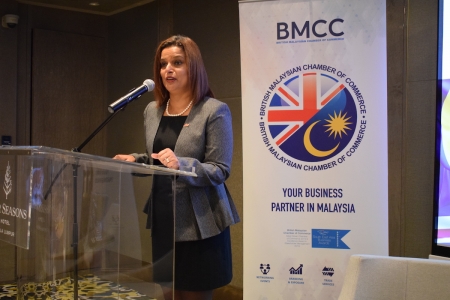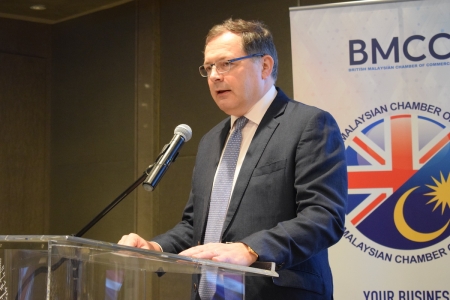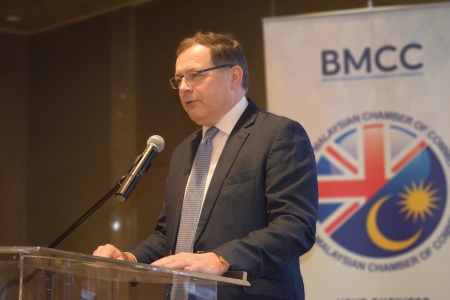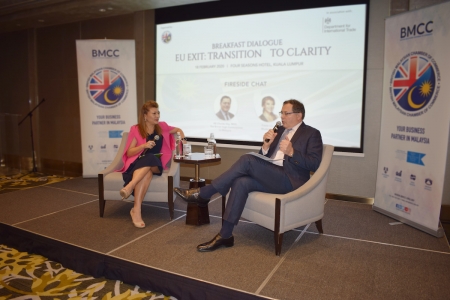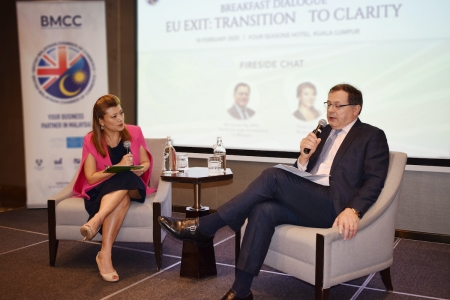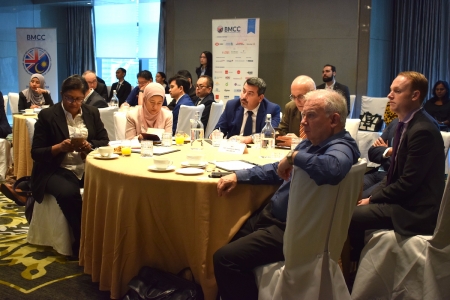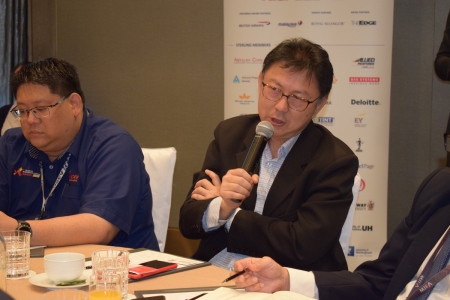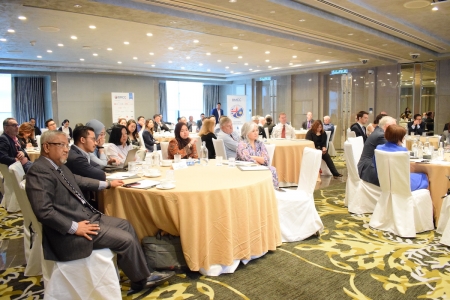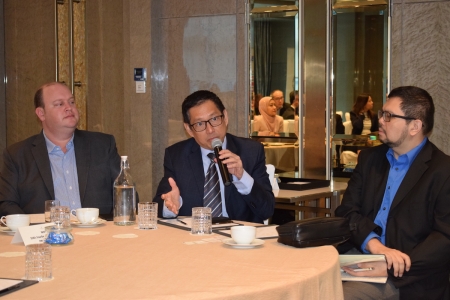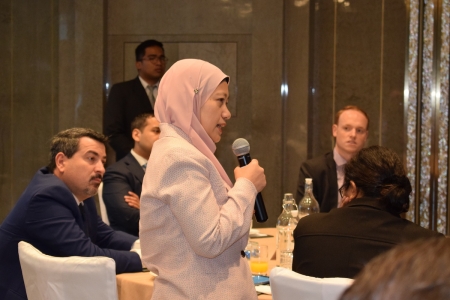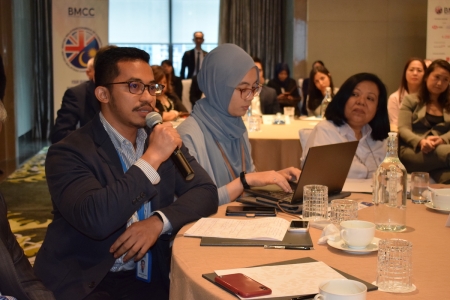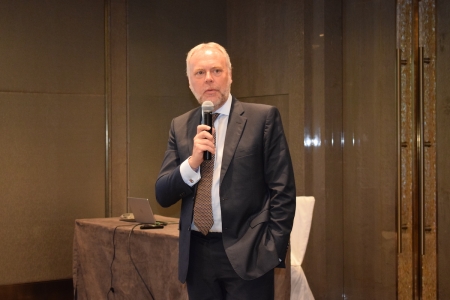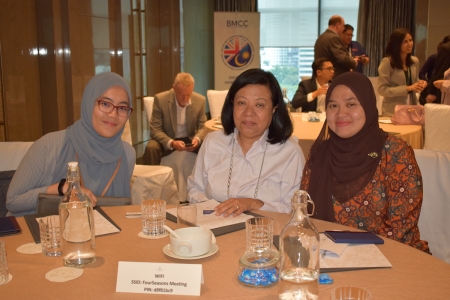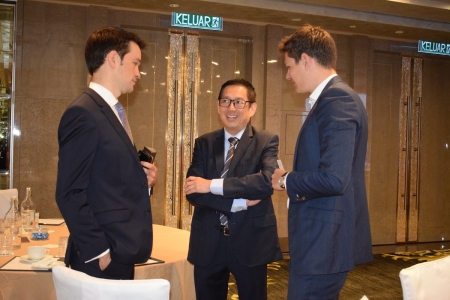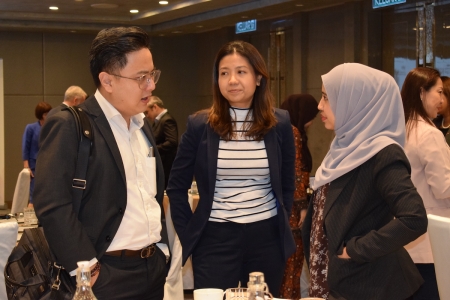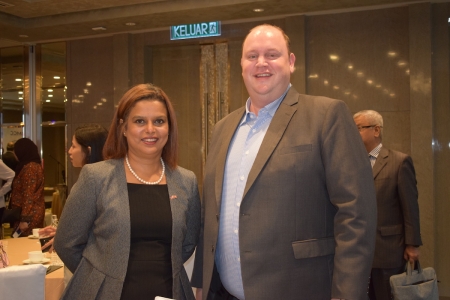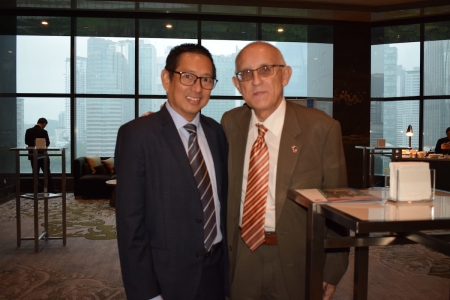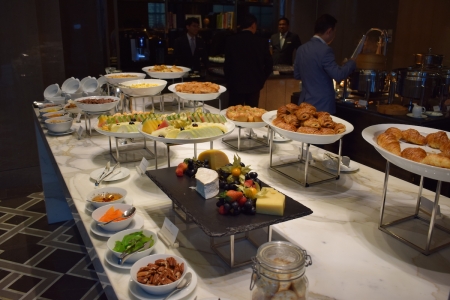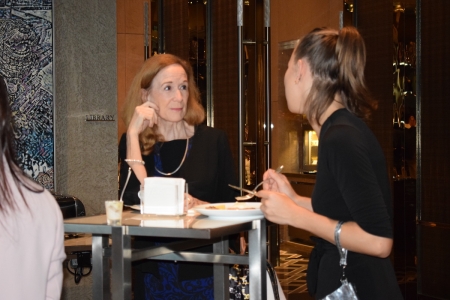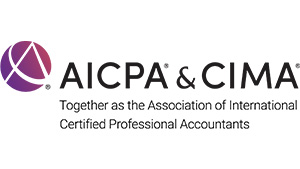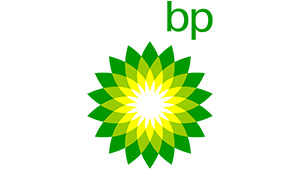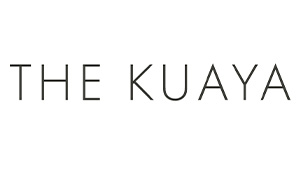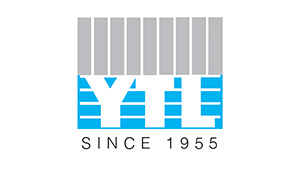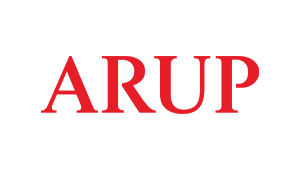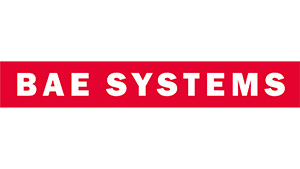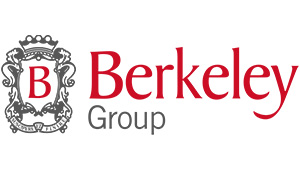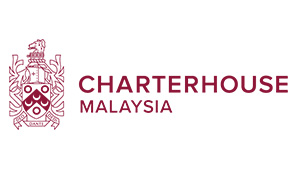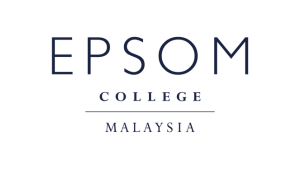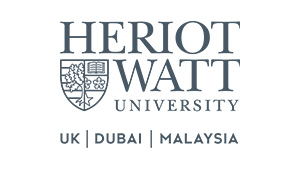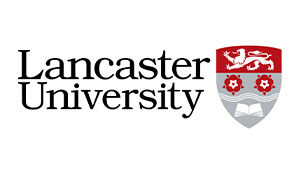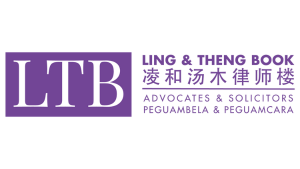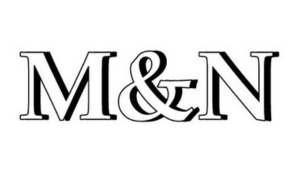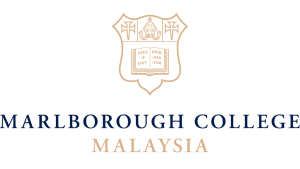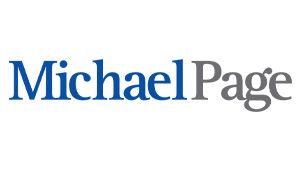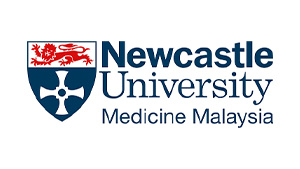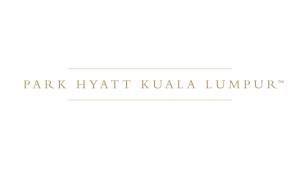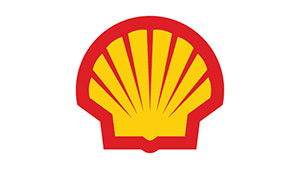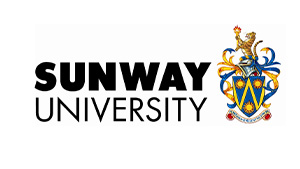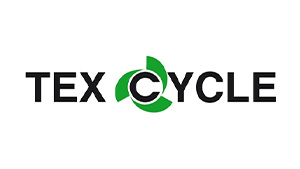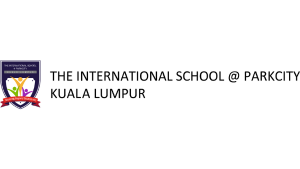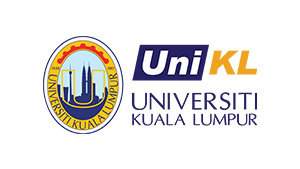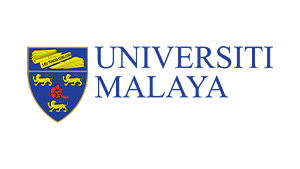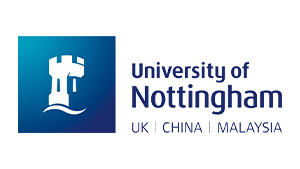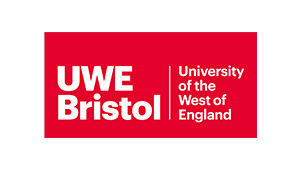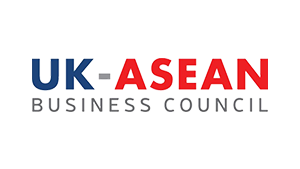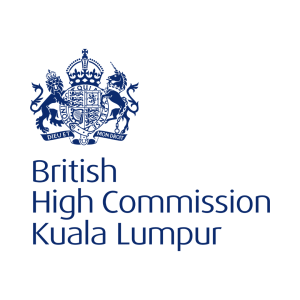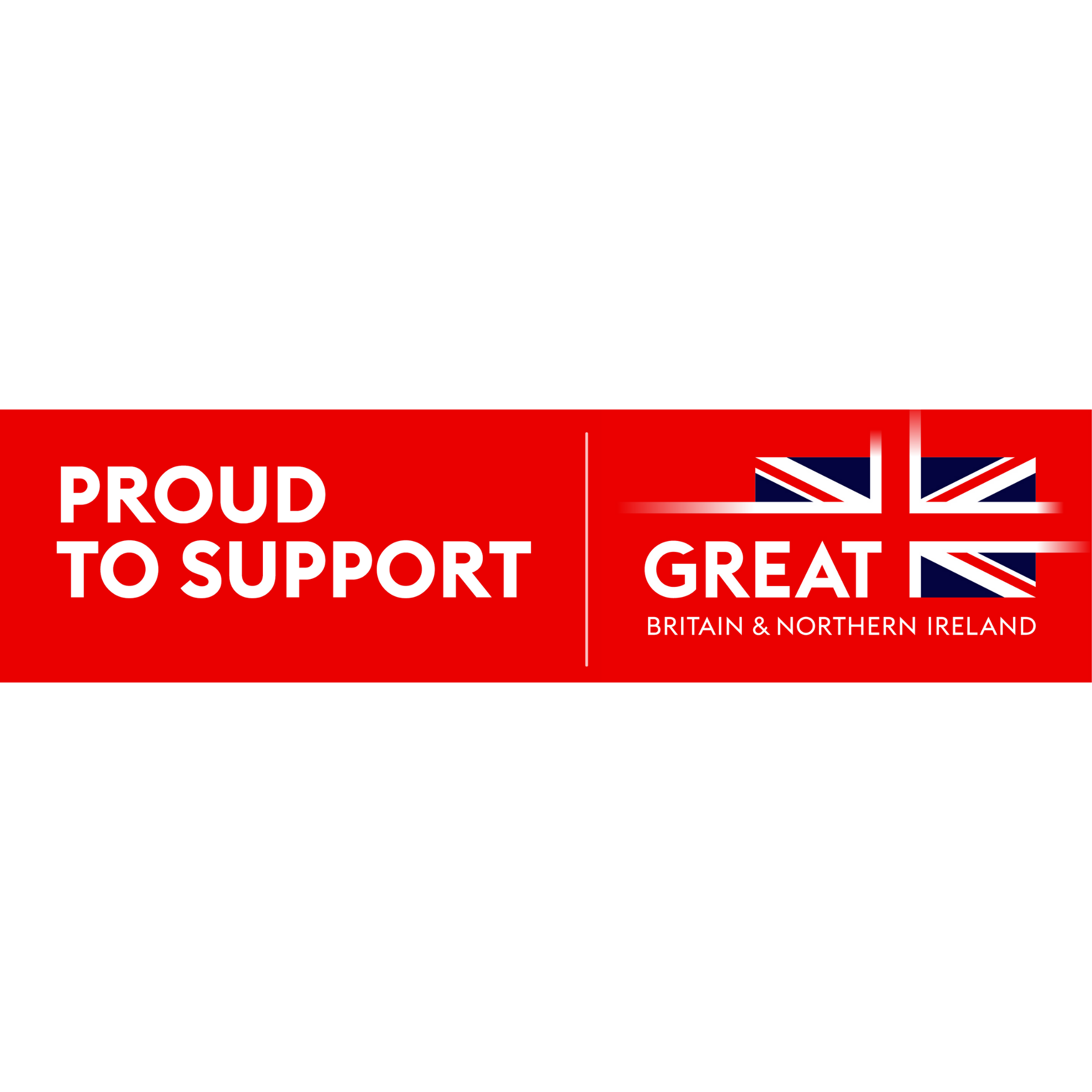Breakfast Talk with H.E. Charles Hay MVO | EU Exit: Transition to Clarity
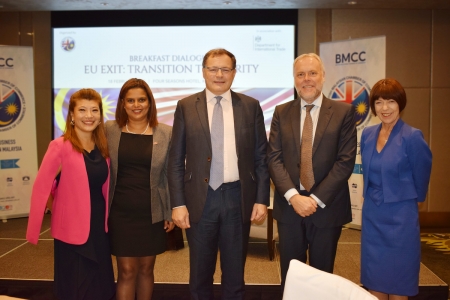
“The most important objective in all policy areas is for the UK to have genuine economic and political independence at the end of the year,” remarked H.E. Charles Hay, British High Commissioner to Malaysia, echoing the sentiments made by UK Prime Minister Boris Johnson. “The British government believes that over time the economic benefits of departing from EU law will offset any hypothetical problems that come from introducing friction into trade between the UK and the EU. Again the Prime Minister has been very clear, the UK wants to be treated as a sovereign equal with the European Union,” continued Charles on the fundamental choice UK had been facing on whether to retain close congruence or opt for a greater divergence from EU regulations.
Last week in a first public address to BMCC members since the UK’s official departure from the EU on 31 January 2020, which thus brought closure to three and a half years of Brexit uncertainty, the British High Commissioner gave a fair and comprehensive accounting on the state of things, covering the UK’s future with the EU, ASEAN and Malaysia.
A New UK Government
Under Boris Johnson, there is a new government in place with a very clear majority. “Making Brexit happen was a very central part of the messaging of the new government as they campaigned in that election. On that point, there is now complete certainty,” said Charles . He went on to comment on the major changes resulting from the UK elections, drawing attention to the distribution of seats and its majority which now lies in the Middle and North of England.
“This is a very new development; who ever would have thought London would become a labour heartland. I think this will make a very big difference [and that] the government has already decided that there needs to be a rebalancing in the UK economy, away from the South which has enjoyed the fruits of economic growth over the past decade, and back further towards the Midlands and the North.
The Transition Period, UK-EU Relations
There is now a transition period until the end of 2020, while the UK and EU negotiate arrangements of departure. The current rules on trade, travel, and business for the UK and EU will continue to apply during this transition period. New rules will take effect on 1 January 2021. The High Commissioner relayed the UK Prime Minister’s clarity and determination that the transition period will not be extended beyond the end of this year.
“The UK has taken its seat in Geneva at the World Trade Organisation Body for the first time since 1973, [and] so we now have a major task ahead of us, which is negotiating [among other things] our future trade arrangement with the European Union,” said His Excellency.
UK-Malaysia Trade Relationship
The UK and Malaysia remain excellent trading partners. After Singapore, Malaysia is the UK’s second largest trading partner in ASEAN with bilateral trade worth about £5 billion a year. Reverberating the focusses of Dominic Raab, Secretary of State for Foreign Affairs who visited Malaysia earlier this month, the UK is keen to promote the sectors of education, technology and services with an interest in further discussing the CPTPP. UK and Malaysia have agreed to set up a joint working group which aims to boost trade and investment between our two countries.
UK and ASEAN
“In the past we never thought of ASEAN as a separate entity. We had very good bilateral relationships with the individual members of ASEAN, but didn’t pay much attention to ASEAN itself. That’s definitely changed. We’ve now appointed our first ambassador to ASEAN and the Foreign Secretary was very keen to discuss the possibility of the UK becoming a dialogue partner with ASEAN,” commented Charles.
Climate Change
Regarding standards and climate change, the High Commissioner remarked, “There is a very clear undertaking from my government that we’re going to continue to protect human, animal and plant life, health and the environment.” The UK will host the 2020 United Nations Climate Change Conference (COP 26) this November in Glasgow. It will be the biggest international conference the UK will ever have hosted, which the High Commissioner aptly highlighted as a point that the UK’s departure from the European Union was not about turning away from the rest of the world.
Businesses and the Future of Borders
All goods entering the UK from the EU will be subject to the same checks and controls as goods coming in from the rest of the world after the transition period is ended. said the High Commissioner. “This comes back to the fundamental point of divergence. The government has been clear as it can possibly be that the UK is leaving the EU’s Custom’s Union and single market; and using that old phrase “taking back control of borders.” The messaging on that is that businesses will need to prepare for life outside the European Union,” advised the High Commissioner.
Movement of People
The free movement of people between the UK and European Union is over. The UK government is intending to introduce an Australian style point based immigration system, which will be driven by the UK’s economic needs.
A fire-chat session was held after the speech with Freda Liu, Producer and Presenter at BFM moderating a one on one session with Mr. Charles Hay. Here, the High Commissioner described in greater detail his thoughts on UK-Malaysia trade, the thriving and budding sectors as well as his own aspirations for future developments in bilateral ties. BMCC Chairman, Andrew Sill wrapped up the morning, thanking the High Commissioner for his time and insights, as well as all 60 guests in attendance who went on to enjoy the morning’s breakfast spread and networking.
